NOTES WHEN STUDYING IN THE US
In early May, Canada and Australia officially ended the 2025 general election with the victory of the Liberal Party in Canada and the Labor Party in Australia. According to Dr. Le Bao Thang, Director of the international education consulting company OSI Vietnam (headquartered in Ho Chi Minh City), these two parties have recently introduced many policies to reduce the number of international students, causing many people to worry.

Parents and students listen to advice from school representatives in Canada in 2024
PHOTO: NGOC LONG
In particular, Mr. Thang commented that Canada's policy still creates some conditions for international students to study, while Australia wants to tighten it even more. This is clearly shown through the election commitment of the ruling party, when it announced that it could raise the student visa fee by 25%, from 1,600 AUD (26.7 million VND) to 2,000 AUD (33.3 million VND).
The above reality makes the US - despite many existing problems such as the revocation of student visas or the "war" between the government and some elite universities - still a study abroad destination full of opportunities. Specifically analyzing, Mr. Thang said there are two main reasons. First, the fluctuations in the revocation of student visas greatly affect students from countries that have conflicts with the US, while Vietnamese people are almost unaffected.
In addition, statistics from the National Association of International Educators (NAFSA) also show that, among hundreds of DHS whose visas have been revoked, India ranks first with 309 cases, followed by China (308), South Korea (51), Saudi Arabia (45)... and no cases have been recorded from Vietnam.
The second reason is that schools are "very protective of students". Sharing from the US, Mr. Thang said that universities are still very welcoming of Vietnamese students and are not pessimistic about recent changes. Specifically, schools have issued recommendations and detailed instructions for international students, even reacting to immigration authorities. Admission policies of US universities are also remaining the same and not being adjusted in a more strict direction.
"Although visa approval is tighter, it also helps select genuine international students, making the US study environment clearer," Mr. Thang further analyzed.
To successfully study in the US at this time, Mr. Thang believes that there are two things that need special attention. First, English proficiency, demonstrated through international test scores such as IELTS, must be as high as possible to convince the visa department that you really want to study in the US. Second, Vietnamese students must focus on integration, in terms of culture, law and ideology.
STUDYING IN AUSTRALIA , CANADA , ASIA IN THE NEW SITUATION
Regarding the opportunity to study in Australia, Ms. Huong Nguyen, Director of Admissions at the Australian Institute of Higher Education (AIH) in Vietnam, informed that a characteristic of this country is that it has different "open - closed" periods for international students. In the current "closed" period, the total number of applications for student visas in the field of higher education has decreased significantly, from 1,000 applications/month at the peak, to now only more than 200 applications/month, according to data from the Australian Department of Home Affairs .
According to Ms. Huong, the positive news is that the acceptance rate for student visas in this field is very high. In 2025, the acceptance rate was 86.64%, 84.55%, 94.25% in January, February, and March, respectively. This fact shows that DHS still has open doors to Australian universities, as long as they are well prepared in English, finance, and "genuine student" (GS) reports.
Another notable point, according to Ms. Huong Nguyen, is that the time to review Australian student visas is now faster than before, "only less than a month, in some cases only 1-2 weeks", instead of lasting from several months to half a year as before. From these positive signals, it is highly likely that the demand for studying in Australia will not decrease too much if the new government decides to increase student visa fees as promised during the election campaign, Ms. Huong analyzed.
If you are still hesitant, DHS can choose to study joint training programs between Australian and Vietnamese schools to save costs, improve English skills and learn more about the field of study.
As for Canada, Ms. Bui Thi Thuy Ngoc, a representative of Confederation College (Canada) in Vietnam, said that this market is facing many challenges, especially since the Canadian government suddenly stopped the study abroad program without financial proof (SDS) at the end of last year. Having to prove financial resources again, which requires a long time to prepare, has made many families confused and forced to change their choices, according to Ms. Ngoc.
"The number of students interested in Canada has decreased significantly," Ms. Ngoc shared, but added that the market is on the way to recovery, especially when the process of issuing admission letters and visa approvals is being accelerated more than before.
"Canada always needs DHS and this is a reality that is unlikely to change in the next 10 years. Currently, the number of DHS accounts for about 1/3 of the total number of students studying college, university, and post-graduate programs in Canada. Another thing of concern is that the enrollment restriction policy is almost only applied to large cities, centers, and especially private colleges and universities," Master Ngoc reassured.
In other positive news, Canada has launched several new immigration pathways, and the re-election of the previous government has helped to keep them stable. Among them, the Rural Community Immigration Pilot (RCIP) does not require applicants to have work experience if they have studied for at least two years; and the Regional Economic Development through Immigration (REDI) pilot is open until the end of 2025.
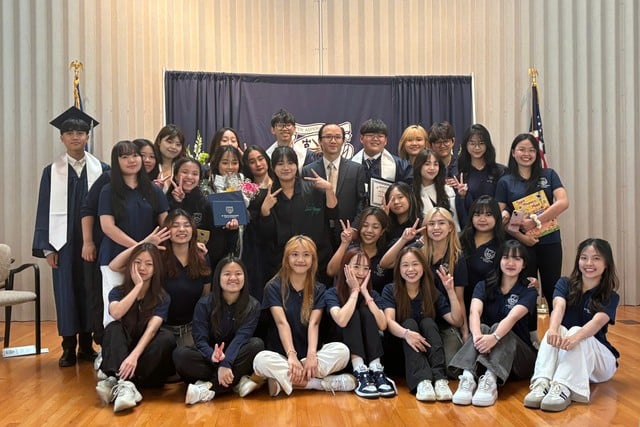
Vietnamese students studying in the US
Photo: LBT
Meanwhile, the British government has just published an immigration white paper on May 12, making many stricter requirements for immigration categories. A notable point in this document is to shorten the time allowed for DHS to stay after graduation without sponsorship, down to 18 months instead of 2-3 years as before under the post-graduation work visa (Graduate route). This decision is awaiting approval by the British Parliament.
However, Vietnamese students should not be too worried, according to Mr. Huynh Anh Khoa, Director of Vietnamese Connect (VNC) Study Abroad Company based in Ho Chi Minh City. Because even if the British government cancels this visa, the demand of the British labor market is still higher than before, since the country left the European Union. New graduates can apply for a Skilled Worker visa to stay in the UK, Mr. Khoa said.
"In addition, you can choose a course with a "sandwich year" for undergraduate level or a "placement year" for master's level to do an internship early while still studying to increase your job opportunities after graduation," Mr. Khoa noted.
Mr. Khoa added that among English-speaking countries, the UK was the first to experience policy changes, followed by Australia, Canada and the US. Therefore, up to now, this is also the country whose visa policy has begun to stabilize and is the most transparent, with "the rate of applicants being wrongly verified for finances, interviewed and considered is not as high as before, and the visa processing time is not as long as before".
"Most importantly, you must show that you are a genuine DHS student by clearly presenting your academic ability, goals, orientation, financial proof... so that the university and study abroad company can review them first, and then go to the visa review department from the UK Home Office," Mr. Khoa noted.
In the context of the changes, the island nation of New Zealand still maintains policies to increase the attraction of students from Vietnam. Most recently, this country allows DHS to study shorter master's courses without worrying about losing the opportunity to stay and work, and at the same time expands the conditions for granting work visas to the spouses of some DHS. This year, New Zealand also launched the first government scholarship for undergraduates (NZUA) for Vietnamese people.
Source: https://thanhnien.vn/du-hoc-cac-nuoc-noi-tieng-anh-co-kho-hon-khi-chinh-sach-thay-doi-185250519192609962.htm


![[Photo] Discover unique experiences at the first World Cultural Festival](https://vphoto.vietnam.vn/thumb/1200x675/vietnam/resource/IMAGE/2025/10/11/1760198064937_le-hoi-van-hoa-4199-3623-jpg.webp)







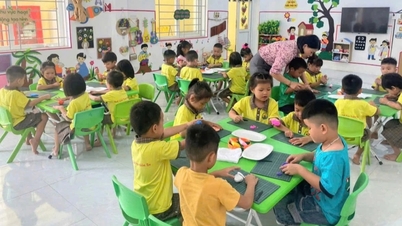

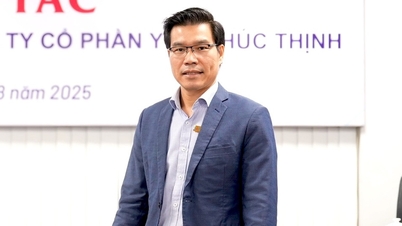

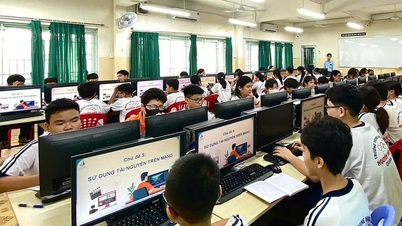

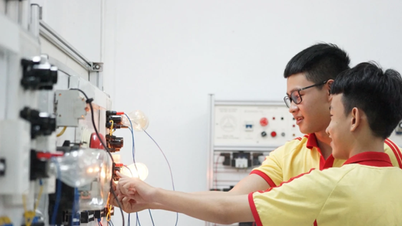





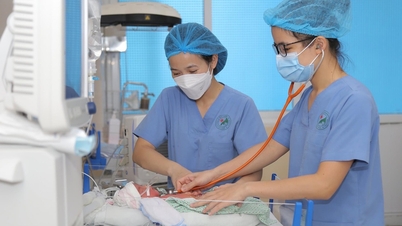

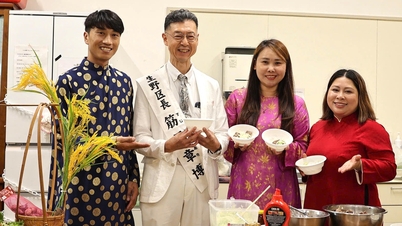




![[Photo] General Secretary attends the parade to celebrate the 80th anniversary of the founding of the Korean Workers' Party](https://vphoto.vietnam.vn/thumb/1200x675/vietnam/resource/IMAGE/2025/10/11/1760150039564_vna-potal-tong-bi-thu-du-le-duyet-binh-ky-niem-80-nam-thanh-lap-dang-lao-dong-trieu-tien-8331994-jpg.webp)

































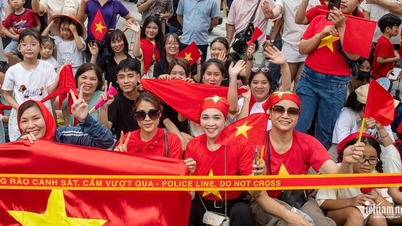







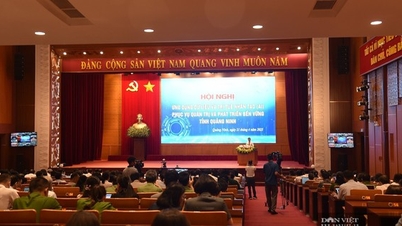

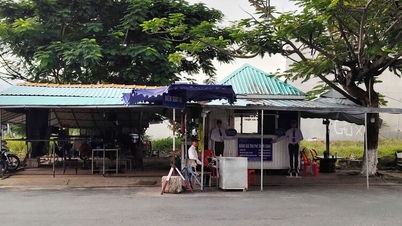






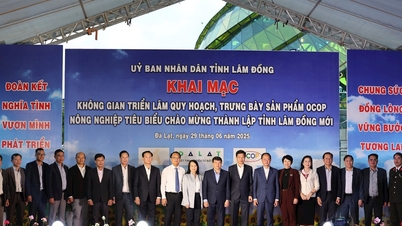
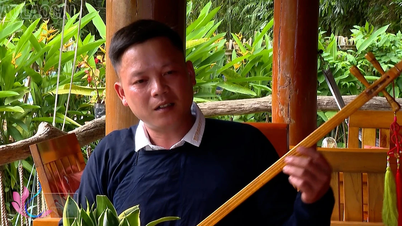















Comment (0)